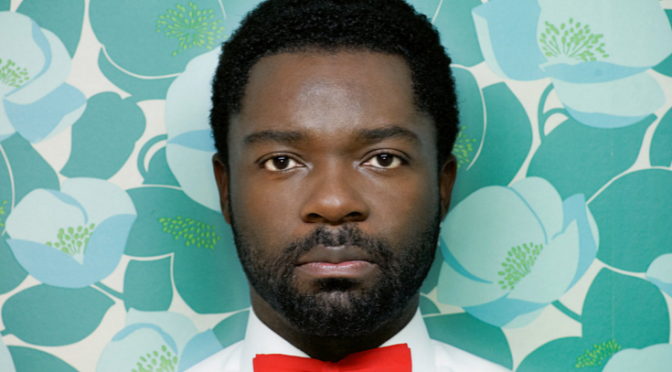David Oyelowo’s steadily progressing film career may not have the cachet it currently does without his firm background in theater. As one of the first black actors to play an English king in a Shakespeare production for the Royal Shakespeare Company, Oyelowo is no stranger to the confines of a single set. Thus, his role as Peter Snowden in Elliott Lester’s HBO film Nightingale isn’t that much of a stretch.
In fact, even the plot itself isn’t all that hard to believe, considering it’s derivative ties to Alfred Hitchcock’s 1960 classic, Psycho, and Laetitia Colombani’s 2002 curveball of a film, He Loves Me, He Loves Me Not. As an oppressed mama’s boy of the South living with his mother, Peter loses his temper when he tries to bring up the notion of inviting a male friend over named Edward–who he knew from his days in the military–for dinner. His mother’s presumptions over why Peter might want to spend time in the company of a man prove accurate, though she doesn’t live to know for certain, as Peter kills her in a fit of rage.
At first, Peter seems to forget what he has done, calling out to his mother to let her know that he’s going to work. But eventually, he delights in the thought of being able to do whatever he wants. He stays in his robe, smokes cigarettes and yells out vindictively at his mother that there’s nothing she can do to stop him. Peter’s overt questionable mental state is made all the more evident when a package his mother ordered, a vanity, of sorts, featuring three folding mirrors, arrives and Peter places it on the kitchen table so that he can talk to it as though he’s talking to her.
In spite of her absence, Peter can’t spend too much time mourning (or even bothering to dispose of the body all that adequately)–he has to plan his dinner with Edward. Just like Audrey Tautou’s deranged character in He Loves Me, He Loves Me Not, Peter seems to imagine actually having a relationship with Edward even though he’s married to a woman named Gloria–naturally, Peter blames her for keeping them apart. Although he never speaks to Edward until the end of the film, he makes the assumption that he will be coming over for dinner on Friday. With many home improvements to make and recipes to try, Peter nearly forgets that his mother ever existed, becoming vexed when calls from concerned fellow parishioners and bridge players come in asking if everything’s okay. He ignores them all, creating excuses about her having an illness or her visiting a friend in Mobile and continuing to focus on his vlog (it is never quite certain whether or not he actually has any online viewers) and telepathically communicating with Edward.
The more time that passes, the further his descent into madness–marked by the third act of the film after he has been tangibly rejected by Edward, attempted suicide and shaved his head. The dramaticism of it all is riveting to watch in large part due to Oyelowo’s acting, and the familiarity of a plotline that never seems to grow tired as perhaps we’ve all had the desire to commit matricide at our most vulnerable state of rage or imagined a relationship to be far more meaningful to the other person than it truly is.






















